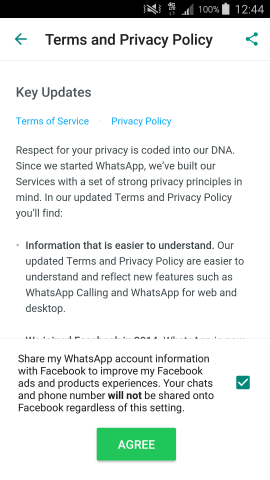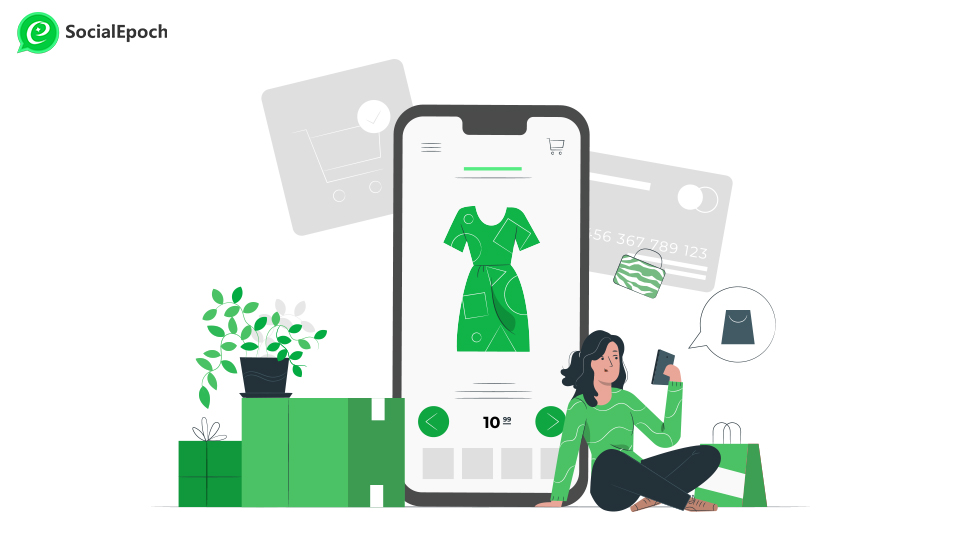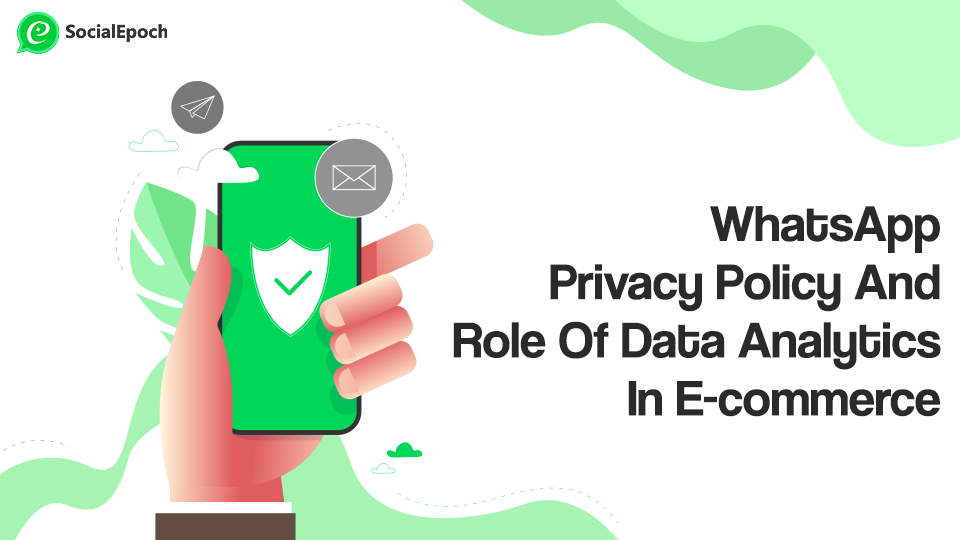Demand for WhatsApp marketing is growing each day, with more businesses joining this platform to reach out to its users. E-commerce through platforms such as WhatsApp, Instagram, and Facebook, isn’t new. You can find this practice to be as old as these services themselves. Social media platforms generate useful data and can be used for data analytics in e-commerce to help in improving user experience.
So, what makes marketing through SNS (Social networking services) so effective?
Social Networking Platforms are equally popular among all age groups. It’s also the place where most people spend their leisure time. This means ads and content floated on these platforms will get more attention as compared to any other marketing approach. Individuals coming across an ad on social media are highly likely to click on the link or place an order. This approach faster and effective, and it also makes it easy to find interested customers through data analytics. Once businesses have data from interested customers, they can pursue them further.
WhatsApp in particular is one of the most popular marketing platforms and has been known to have the highest open rate of 98% and up to 40% response rate. Since WhatsApp is easy to use and is suitable for all businesses big and small, businesses prefer it to create a more personal relationship with their customers. Moreover, the cost involved in marketing through WhatsApp is nominal as compared to television or newspaper ads.
But will WhatsApp’s new privacy policy have a negative impact on the business on WhatsApp?
The latest privacy policy update released by WhatsApp owned Facebook, has caused quite a stir among its users. Here is what the new privacy policy looks like:

The Myth
1 . With the implementation of the new privacy policy, WhatsApp will share all their account information with Facebook.
2. Users personal chats will no longer be personal and Facebook will be able to read them.
The Fact
WhatsApp is very protective of its users and is highly committed to its user’s privacy. All chats on the platform are end-to-end encrypted. Which means that no one can read them except the sender and the receiver. Hence, the updated privacy policy does not change anything and works completely outside the boundaries of its user’s privacy.
WhatsApp consistently strives towards improving its user experience and work on understanding its user behavior, their interests, likes/dislikes, and more. For this, they require some basic information such as IP address, mobile device information, service-related information, how its users interact with others, service-related information, transaction data, hardware information, and account registration details. These details help them identify issues that its users may be facing and come up with appropriate solutions.
The updated privacy policy is an attempt to ensure better security to your account. It also helps in fighting against spam, fraud, or any unauthorized practices on its platform. Once this new policy is implemented, WhatsApp users can use the platform more securely.
Impact of Updated Privacy Policy on Businesses
The new update will help businesses with data analytics. This in turn will help them in understanding their audience better and ensure better user engagement. For businesses that run entirely on WhatsApp or WhatsApp business, this update will provide them better insights about its customers. It will also ensure that they carry out all their business transactions safely.
So, the new privacy policy update works in favor of its users. Small and medium businesses can find it to be useful in more ways imagiable.
How Data Analytics in e-commerce plays an important role

E-commerce is mainly driven by customer demand and user experience. For businesses, it becomes vital to know what customers expect from them and how to improve the user experience and engagement.
Let’s take the example of Meesho:
Meesho is a social commerce platform that allows individuals and small businesses to start their online store. Users can further sell those products through SNS such as Facebook, WhatsApp, and Instagram.
Once you register on the Meesho app, you can see a wide variety of products from various whole sellers. Users can share the product catalog of that particular seller on their social media profile. As soon as you get an order, you can send a request for the product to the seller. The seller then delivers the product directly to the end buyer. This earns the individual or business a certain share of the profit.
Role of data analytics
Now, if we bring data analytics into the picture things become much simpler.
For example, if the seller knows which type of product is most in demand, which will be their peak season, what are the prices that their competitors are offering, which region generates maximum demand, wich user brings them maximum orders and more, it will become so much easier for sellers on Meesho to plan their production and meet their customer demands faster.
Data analytics can also be used by e-commerce sites in determining user behavior on the business website. Information like how much time they spend on the website, which are the links they clicked, the kind of products they were interested in, and the price range they were looking for, all these data can help the business sites improve their user experience by suggesting the user the handpicked items that fit the users choice and price range.
Data analytics is extensively used on social media platforms as well. It figures out which type of content you are interested in and suggest similar content so that you enjoy spending more time on the platform. Facebook uses a high level of data analytics to identify the likes, dislikes, interests, activity, social network, jobs, and much more so that that can target you with custom ads that fit perfectly to your taste and requirements.
So, the next time you see a pop-up ad for a product that you were interested in buying, don’t be surprised. You are seeing the ad because you have shown interest in similar products in some way or the other.
WhatsApp- A new era e-commerce platform

WhatsApp which was invented to create a platform for personal conversations has completely transformed the e-commerce space. From having one to one communication with customers to completely shifting their businesses to WhatsApp’s business app WhatsApp Business, we have seen all businesses small and big embrace WhatsApp marketing. It has also opened new opportunities to SMEs and craftsmen to sell their products anywhere across the globe through their simple app.
WhatsApp encouraged this huge shift in marketing through its platform by introducing features such as WhatsApp pay which allows sending and receiving money through WhatsApp just like we send or receive text messages. Every other day, this social messaging platform adds more and more features to its app, which makes it extremely easy for everyone to run their business hassle-free.
SocialEpoch, which provides an added layer of high-end customer relationship management features to WhatsApp can help businesses in engaging with their users better through WhatsApp and establish a strong personal relationship through personal interactions.
Just by looking at the pace at which WhatsApp is digging its roots deep into the e-commerce space, it can be safely said that WhatsApp marketing is the future of e-commerce and social e-commerce being the future of marketing is inevitable.
















